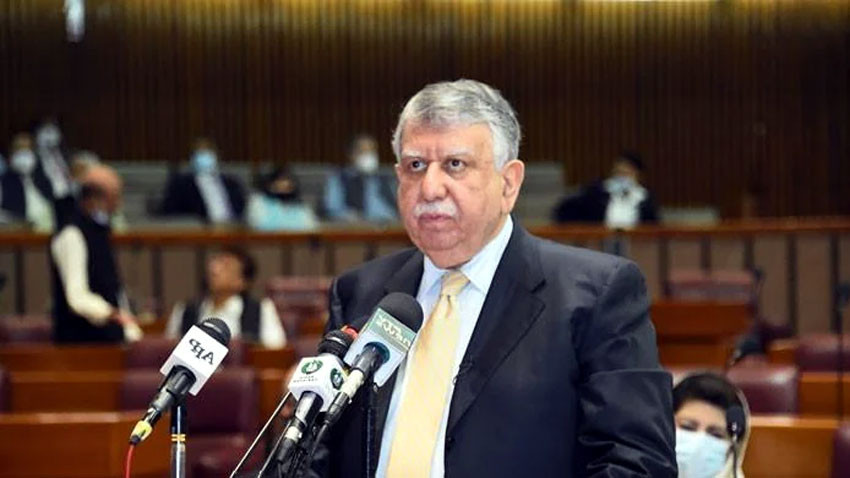
Government sets minimum wage at Rs20,000
Govt unveils people-friendly budget as no new tax imposed on salaried class, economic growth target set at 4.8%
Unveiling the federal budget for FY22, Finance Minister Shaukat Tarin kicked off the national assembly session by recalling the state of the economy that the Pakistan Tehreek-e-Insaf (PTI) government had received when it came into power.
He said that the current account deficit was at a historic high of $20 billion but the government through its prudent policies managed to drag the economy out of trouble.
He said that the budget deficit was at a high of 6.6% and the foreign exchange reserves were at a critical level of $10 billion at the end of PML-N’s tenure. However, the situation has now improved.
He said that the responsibility to fix the economy fell to the PTI government as the previous government had hampered the economy by taking loans and artificially was fixing the dollar at Rs104 for five years.
Read more: NA speaker sees no difficulties in passage of budget
Moving on, he said the biggest challenge to the government was to avoid a financial default.
Highlighting the success of the PTI government, the minister said they had managed to bring the current account from deficit to a surplus of $800 million. He said that the economy was on the road to stabilisation and growth.
Talking about the Covid-19 outbreak, he said that the government had managed the situation well and saved the economy from crisis.
From March-May we faced the third crisis but through timely action, we managed to come out of this situation.
Talking about agriculture, the minister said that the agriculture sector witnessed historic growth.
Tarin claimed that Pakistan has now entered the growth club. “Economy is on the way of growth.”
Pakistan faced two faceted problems, however, the country managed to remain protected from default.
During the outgoing fiscal year, the country witnessed historic growth in the agriculture sector. Meanwhile, the large-scale manufacturing sector recorded growth after many years and posted 9% growth during FY21, he added.
All crops showed growth, he added.
PHOTO: EXPRESS
Read more: Expenditure side of the budget
And services sector including transport, banking, insurance recorded significant growth compared to previous years.
Tarin highlighted that poverty reduced and jobs were created.
“We succeeded in fighting grave consequences of Covid-19, despite the severe third wave which created more havoc compared to the first two waves,” he added.
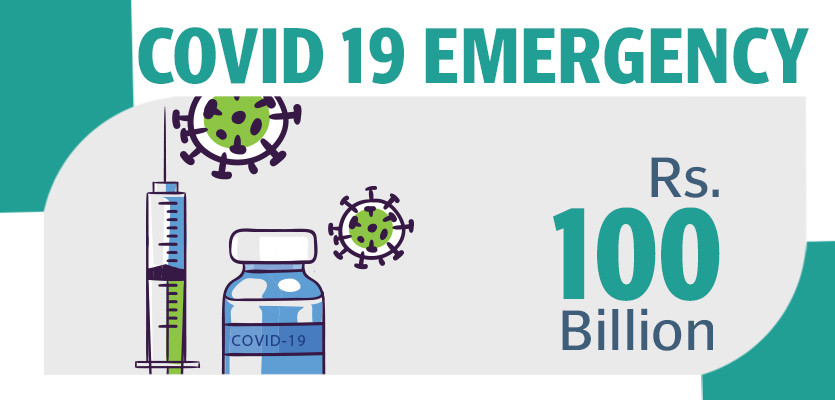
“During these tough times, we enhanced hospital resources,” the finance minister said.
The low-income segment was benefited through the Ehsaas program which provided relief to 12 million households – covering 40% of the total population.
In the next fiscal year, the government expects $29 billion in remittances, he said.
With a record-high production in agriculture, the sector contributes Rs3.1 trillion to the national exchequer.
Growth in the large-scale manufacturing sector helped create jobs accommodating people who were laid off during the pandemic.
Sharing more details, the finance minister said that the e-commerce and fintech industry is expected to steer the online job ecosystem.
During the fiscal year 2020-21, tax revenue increased and showed 18% growth as tax receipts crossed Rs4 trillion.
Exports increased by a significant 14% as a rebate, duty drawback helped the sector flourish, he added.
Earlier in 2018 when the PTI government came into power, the current account deficit was a huge challenge, but now this is also under control.
Tarin mentioned that remittances rose 25% to $29 billion during FY21.
Read more: Rs96b reserved in next budget for MPs' projects
Shedding light on the issues, the finance minister said that inflation is a problem as it is affecting the low-income segment.
“It should be accepted that inflation is rising due to rise in food prices.”He claimed that $16 billion reserves are enough for imports for three months. Sufficient reserves are fuelling rupee stability.
“Pakistan is a food deficit country because the sector was neglected for past 15-20 years,” he clarified.
“We have to make Pakistan a food-sufficient country and for that, we have to focus on agriculture,” Tarin added.
Commodity warehousing, cold storages are the need of the hour. Moreover, the country needs administrative control mechanism.
Government debt is declining, public debt rose due to the Covid-19 package.
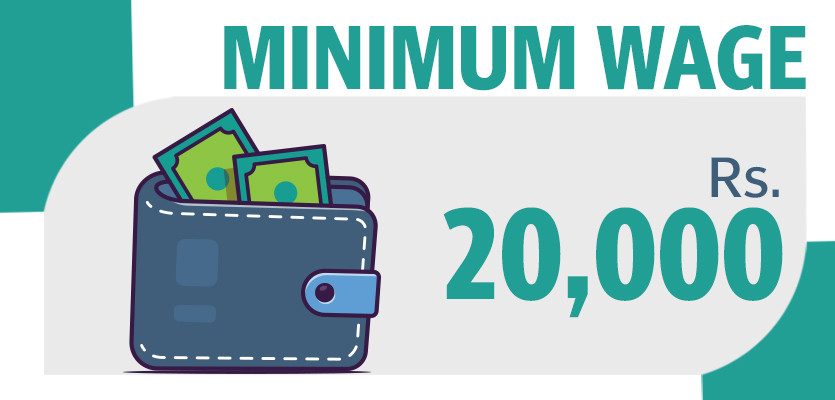
Growth plans
For the fiscal year 2021-22, the Imran Khan-led government aims for inclusive and sustainable growth.
With a target of 4.8% growth rate, the premier wants to turn the direction of the country.
During his budget speech, Tarin mentioned that four to six billion households will be given up to Rs5 lac interest-free loans.
Every agriculture-based household to get interest-free loans worth Rs1.5 lac, he said. While Rs20 lacs would be given in low-interest loans for low-cost housing.
The government aims to provide relief to the lower segment, hence this segment will be granted good incentives.
In Pakistan, 65% of the population is below 30 years of age and if the government cannot create jobs, it will wasting national advantage.
Read more: Pakistan succeeded in reviving economy despite Covid pandemic: Forbes
“Therefore, we want to ensure 6-7% growth over next few years,” Tarin added.
Special economic zones (SEZs) will be used to create jobs which will also ensure growth in exports.
While unveiling the budget, the finance minister mentioned that PTI’s government has decided to provide tax relief package.
Subsidy worth Rs3 lac rupee subsidy will be given. And for the first time, mortgage financing has been started.
Mark-up rates have been stabilized. Cash transfer, Kamyab Jawan programme, interest-free loans are all part of the Ehsaas programme, the government has allocated Rs260 billion for this development programme.
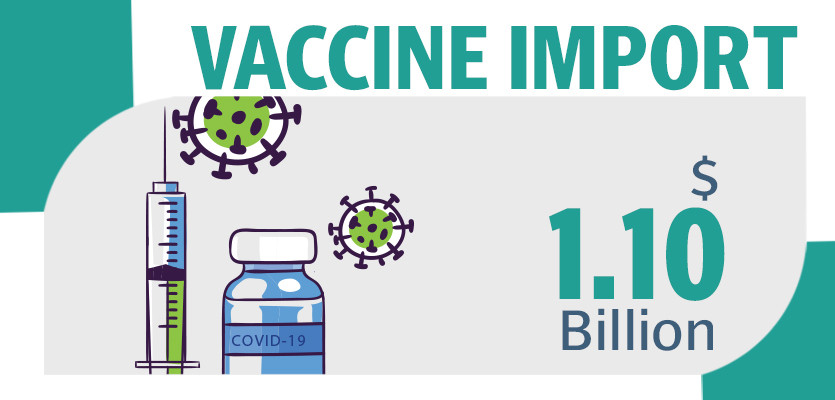
Energy sector
In the budget for the next fiscal year, a special plan for the elimination of circular debt would be introduced.
“The government plans to reduce line losses through investment,” Tarin added. Moreover, an electric vehicle policy would also be announced.
Development expenditures
In the next fiscal year, the government has increased the PSDP budget to Rs900 billion from Rs630 billion.
Tarin assured that the government would improve road infrastructure. Furthermore, through PSDP, it will invest in high return projects.
Agriculture
Unveiling the federal budget, the finance minister announced a national agriculture emergency programme.
The government plans to enhance livestock on modern lines and has decided to allocate Rs12 billion for the most important sector.
Dasu, Diamar-Bhasha and Mohmand dams are a part of the budget. Rs91 billion have been allocated for water resources. Moreover, Rs14 billion have been allotted for the Neelum Jhelum power project.
Tarin mentioned that the ML-1 project will be completed in three packages.
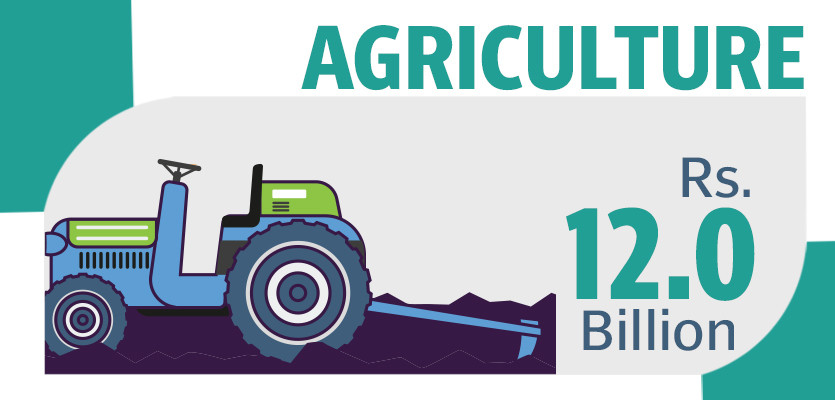
Sharing the allocations for next year, he mentioned that Rs22 billion have been allocated to produce 100 MW electricity at Jamshoro.
Moreover, Rs22 billion have been allocated for coal-based power projects, Rs16.5 billion for Tarbela fifth extension and Rs118 billion for different power transmission lines.
Provincial transformation
Rs16.5 billion have been allocated for Karachi-based projects for the fiscal year 2021-22.
The federal government will grant Rs98 billion.
For developmental projects in Gilgit-Baltistan, the government has allocated Rs40 billion. Meanwhile, Rs54 billion have been allocated for Khyber-Pakhtunkhwa. Rs 601 billion will be given to South Balochistan for uplift programs, he added.
Train mentioned that Pakistan People’s Party has 50 projects worth Rs2 trillion, which include railway, water, aviation, road and health schemes.
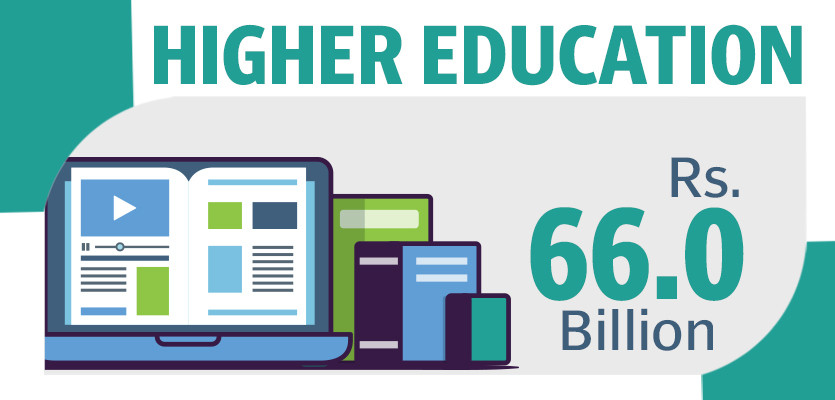
Climate change
The federal minister stated that Pakistan is one of the 10 countries most hit by climate change.
Highlighting PM Imran's vision of planting trees, he said Rs14 billion have been allocated for the government’s vision of “One Billion Tree Tsunami.”
Rs118 billion have been allotted under PSDP for the social uplift.
Non-tax revenues to rise by 22% during FY22, meanwhile federal expenditures to rise 15%.
Under the budget, $1.1 billion have been allocated for vaccine import
Sector-wise break-up
The finance minister stated that Rs12 billion have been allocated for SMEs.
Rs10 billion for the Kamyab Jawan programme and Rs66 billion will be granted to HEC, he said.
A self-assessment scheme would be introduced in the next fiscal year. Individuals can prepare their own tax returns.
Moreover, Tarin mentioned that an e-audit system will be introduced and audit will be done by international auditors.
Income and expenditure taxes would be primary instruments. Technology will be used to identify new taxpayers.
Providing relief, the finance minister said no taxes to be applied on salaried class.
Without substantial information, the Federal Board of Revenue would not conduct audits, he said.
Moreover, all retail and wholesale transactions will be added in the tax net and the rich people would be urged to pay their due taxes.
Read more: No hike in power tariff, new taxes, IMF told
The finance minister added that gifts will be awarded on sales tax receipts through a lucky draw on monthly basis.
Tarin revealed that Pakistan's single window project will be introduced for fast-track clearings goods from ports. A special cell for the retail sector will be established by FBR.
Moving towards tax relaxation for the auto sector, Tarin said that 850 CC cars will be exempted from federal excise duty and sales tax would be reduced.
The government decided to reduce sales tax on electric vehicles from 17% to 1%.
Read more: Tax exemptions jump to record Rs1.31tr
Moreover, for the uplift of a particular sector, import of plant, machinery, raw material in special technology zones will be exempted from taxes.
For the telecom sector, federal excise duty has been reduced from 17% to 16%, he said adding that the withholding tax will be reduced by 40%.
Moreover, the WHT from 12 documented sectors to be withdrawn, which include banking, Pakistan Stock Exchange, margin financing, air travel services, international transactions from debit and credit card, he added.
The finance minister further added that the WHT on mobile phone services has been reduced from 12% to 10%.
The government plans to further reduce taxes on mobile phone services to 8%.
Withholding tax on oil field services, warehousing services and collateral services have been reduced to 3% from 8%.
Furthermore, capital gains tax reduced from 15% to 12.5%. Furthermore, capital gains tax reduced from 15% to 12.5%. Tarin also revealed that the government plans to further reduce CGT in years to come.
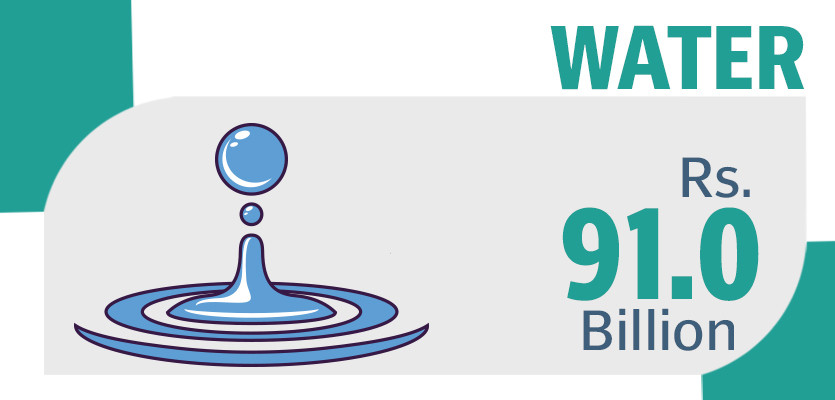
For the next fiscal year, the association turnover tax limit has been increased from 10 million to 100 million, he said.
Tax rates for FMCG and refinery retailers have also been reduced by the incumbent government. Moreover, income tax and property tax has been removed, the minister said.
The government plans to set up five lac POS machines for tax credit. Withholding tax on import of books, magazines also exempted, he said.
Tarin said that SMEs with a turnover of Rs100 million will be taxed 0.25%, while small-medium enterprises with a turnover of Rs100-250 million will be taxed 1.5% of the turnover.
Services import through banking channels will be taxed at 1%. Furthermore, IT and IT exports will be given 100% tax credit.
The finance minister added that no tax will be taken on turnover from SEZs. Special technology zone authority, zone developers and zone enterprises to get 10-year tax exemption, he added.
The Telecom sector will be given industrial status in the fiscal year 2021-22. The finance minister also announces a one-year customs duty exemption for electric vehicles.
Rea more: Market watch: KSE-100 rises 118 points on budget optimism
Furthermore, additional customs duty and regulatory duty on 164 textile articles have been removed in the federal budget, these articles include yarn.
The finance minister said that tariffs for the cotton value chain, polyester value chain and man-made fiber has been reduced.
Road alloy and steel material were also exempted from additional customs duty and regulatory duty on these has also been reduced.
Customs duty was removed from the disposable syringes industry. The dairy industry has also given tax relief, the minister added.
During his speech, Tarin also shed light on mobile phone device policy the government plans to export phones soon.
The minister said that the Customs department is working to end smuggling at borders.
More than 74 departments will integrate under Pakistan single window project and it will prove to be a game-changer for Pakistan.
He also mentioned relief measures provided for the government employees, who will be granted 10% adhoc relief allowance.
Meanwhile, pensioners will get 10% rise. Integrated allowance for Grade 1-5 has been raised from Rs450 to Rs900.
The finance minister concluded his speech by saying that all citizens will benefit in some way from the budget.
In the upcoming fiscal year the minimum wage will be raised to Rs20,000, the finance minister said.
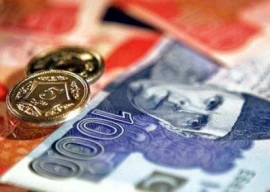
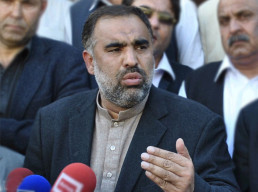
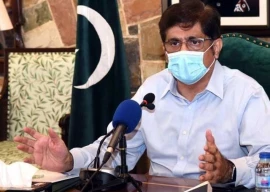




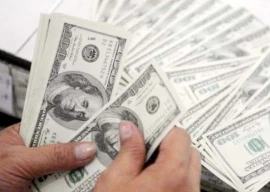













COMMENTS
Comments are moderated and generally will be posted if they are on-topic and not abusive.
For more information, please see our Comments FAQ